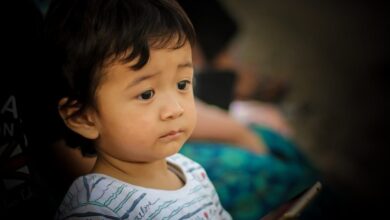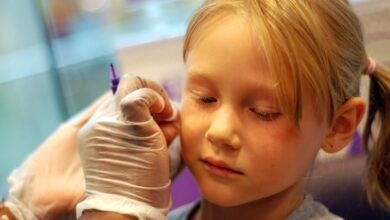Coronavirus: 5 Parental Tips on How to Protect your Kids from Coronavirus (COVID-19)
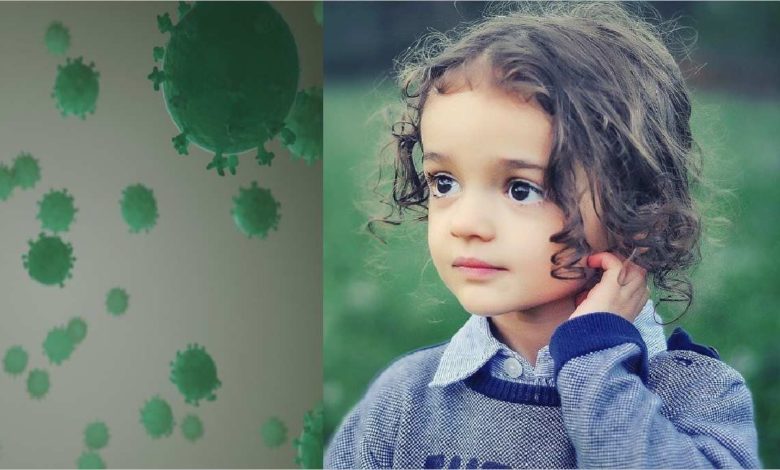
If you are reading this article, it means you are searching for ways on how to protect your kids from coronavirus (COVID-19). Since the outbreak of COVID-19 back in December 2019, the world has never been the same. The impact of coronavirus (COVD-19) on the world’s economy is so devastating; Businesses shut down, people confined indoors or working from home, schools Closed, Social gathering ban.
How to Protect your kids from coronavirus (COVID-19) should be your ultimate goal this period. In today’s article, we’ll share insights on ways to protect your kids from COVID-19 to mitigate the risk associated with this new virus and show you what parents need to know about coronavirus.
Table of Contents
What is Coronavirus
Coronavirus is an animal virus that has emerged to infect people and can spread from person to person. Coronavirus is also responsible for diseases such as Middle East Respiratory Syndrome (MERS-CoV) and Severe Acute Respiratory Syndrome (SARS-CoV). It also causes less severe illnesses like the common cold.
A coronavirus can infect many species of animals and humans. The symptoms of coronaviruses and common seasonal viruses like the flu are very close. With this characteristic, when a new strain arrives, it becomes difficult to detect.
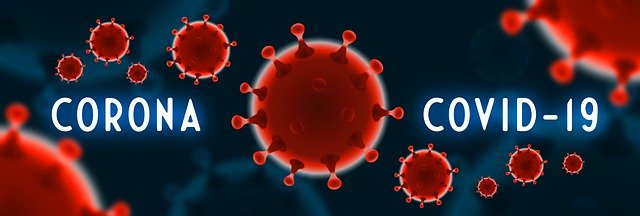
On December 31, 2019, in Wuhan, China, a new highly infectious and possibly deadly strain of the virus was reported to have been identified in humans. This virus was label the new coronavirus 2019 (COVID-19). From there, It went global, becoming a pandemic disease infecting about 468,644 people around the world and counting. The death toll of COVID-19 is about 21,000 globally and still rising.
What Parents Need to Know About Coronavirus
For you to know how to protect your kids from coronavirus (COVID-19), you need a good knowledge of the virus, their signs, and symptoms, how its contacted, quarantine and isolation of infected persons, and prevention of COVID-19, etc.
Coronavirus Symptoms
After exposure, an individual will show the symptoms of COVID-19 infection, and it appears between two to fourteen days. Characteristically, the common signs of infection include:
- Cough
- Breathing difficulties
- Fever
- Shortness of breath
- Respiratory symptoms
COVID-19 infection can cause the following harm in more severe cases
- Pneumonia
- Severe acute respiratory syndrome
- Kidney failure then
- Death
Difference Between Coronavirus and Cold or Flu Symptoms
The main difference between COVID-19 and cold or flu symptoms is that symptoms start peaking 2 to 3 days after exposure, and the list for common seasonal illnesses is longer compare to COVID-19
| SYMPTOMS | CORONAVIRUS | COLD OR FLU | |
| Sneezing | Yes | Yes | |
| Stuffy nose | Yes | Yes | |
| Runny nose | Yes | Yes | |
| Sore throat | Yes | Yes | |
| Coughing | Yes | Yes | |
| Post-nasal drip | Yes | Yes | |
| Watery Eyes | Yes | Yes | |
| Fever | Yes | Yes | |
| Muscle or body aches | No | Yes | |
| Fatigue | No | Yes | |
| Headaches | No | Yes | |
| Nausea | No | Yes in children with flu only | |
| Diarrhea | No | Yes in children with flu only |
How is Coronavirus (COVID-19) spread?
To know how to protect your kids from coronavirus, you need to understand the transmitting route and ways people get infected with the coronavirus.
COVID-19 was first detected in Wuhan City, Hubei Province, China. This new Coronavirus believed to be spread by contacting surfaces that were touched by an infectious person and then touching any other opening in the body – nose, eyes, or mouth. When a contagious person sneezes and coughs, they release respiratory droplets that spread the disease. The droplet released by an infectious person can travel up to six feet from the point of release.
Before discovering that the disease is transmittable from person-to-person, the infection was linked to a live animal market in Wuhan China, where it was first detected. It’s important to note that person-to-person spread can happen gradually without any clear, distinct form.
A sick person with COVID-19 can pass on the illness to others. A sick fellow should be quarantined either at home or in the hospital. Depending on how sick they are, an Infected person such be kept away until they are better and no longer have the tendencies to infect others.
The Use of facemask
Healthy persons need not wear a facemask to protect themselves from respiratory illnesses, including coronavirus (COVID-19), as recommended by the Center for Disease Control (CDC). You can wear it only if it is approved by a healthcare professional
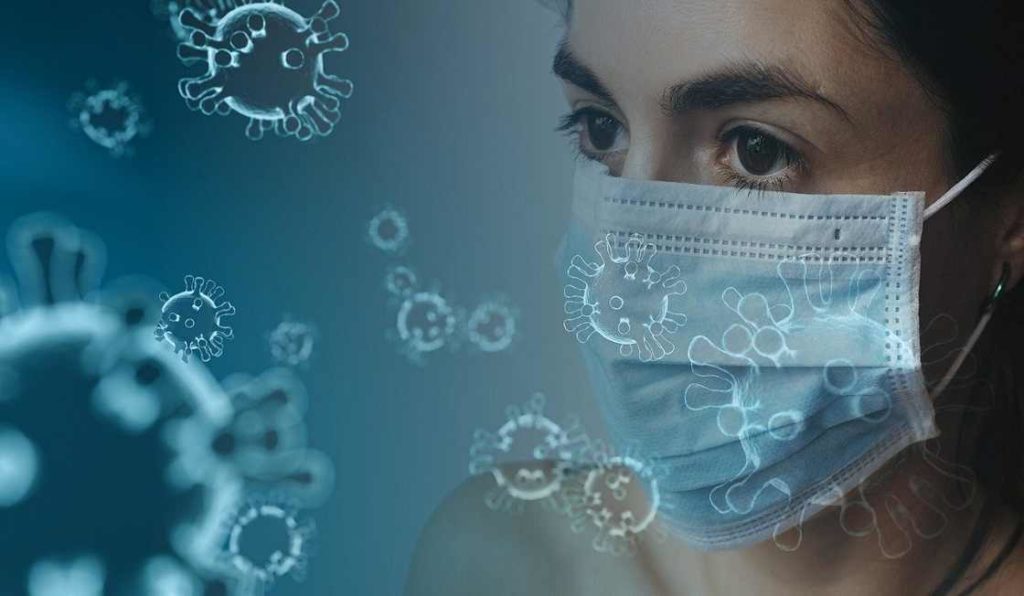
People who have CORONAVIRUS (COVID-19) or showing symptoms of the virus should use a facemask – This measure is geared to protect others from contracting the disease. Health workers and other people who are in charge of people infected with coronavirus (COVID-19) at home or in a health care facility are mainly required to use face-masks.
Is it Save to Release a Patient Healed from COVID -19 from Isolation?
The duration of the COVID–19 sickness can vary from person to person, so the decision whether to release someone from isolation, according to the CDC guidance – is made on a case-by-case basis in consultation with doctors, infection prevention and control experts, and also includes meeting with the following requirements below.
The current CDC guidelines for when it is safe to release someone from isolation is made on a case by case basis and that:
- Until a formerly infected person shows no sign of fever without the use of fever-reducing medications.
- The patient stops coughing and no longer show other symptoms.
- That a previously infected person now tests negative on a minimum of two consecutive respiratory specimens within 24 hours apart.
Therefore, someone who was released from isolation is considered not to pose any risk to others. You can get more details from the Center for Disease Control in your various countries.
5 Simple Guide on How to Protect Your Kids from Coronavirus (COVID-19)
1. Regular Washing of Hands
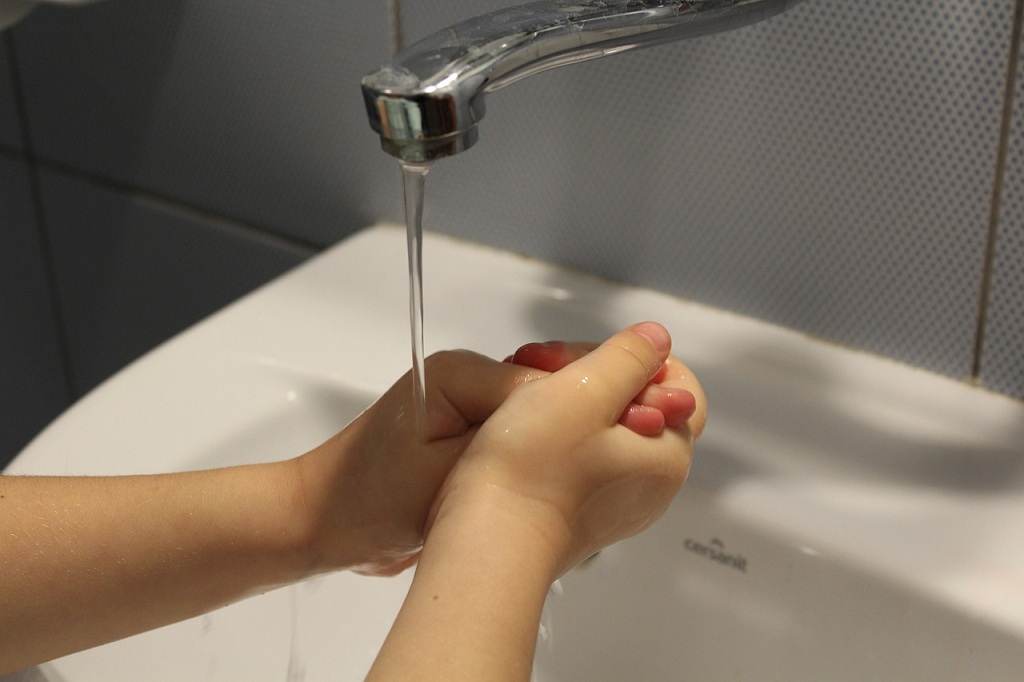
Washing of hands topped our guide on how to protect your kids from coronavirus (COVID-19) because it is simplest way to prevent the spread of the virus. Parents need to encourage kids to wash their hands often. For younger ones, parents and caregivers will have to wash their hands for them. Washing of hands is essential, especially with times like this.
When to wash hands:
- Before eating food
- You must wash hands after using the toilet
- You wash hands after changing diapers or cleaning up your baby who has used the toilet
- Children should wash hands after blowing their nose, coughing or sneezing
- Wash your hand after taking out the garbage
- Wash your hands before, during and after preparing food
- Caregivers must wash hands before and after caring for a sick person with vomiting and diarrhea at home.
Five Steps to Wash Your Hands Properly the Right Way
Washing of hands properly the right way is easy; it’s one of the most effective ways to protect yourself and your kids from COVID-19 and also stop the spread of the virus. To prevent the spread of this virus and other germs from one person to another and throughout an entire community – Washing of hands should be strictly adhered to, from the homes and workplace to childcare facilities and even hospitals.
Five steps to following when washing your hands:
Washing of hands has shown tremendous benefit to stop the spread of germs, so to protect your kids from COVID-19, the following five steps of hand washing should be observed.
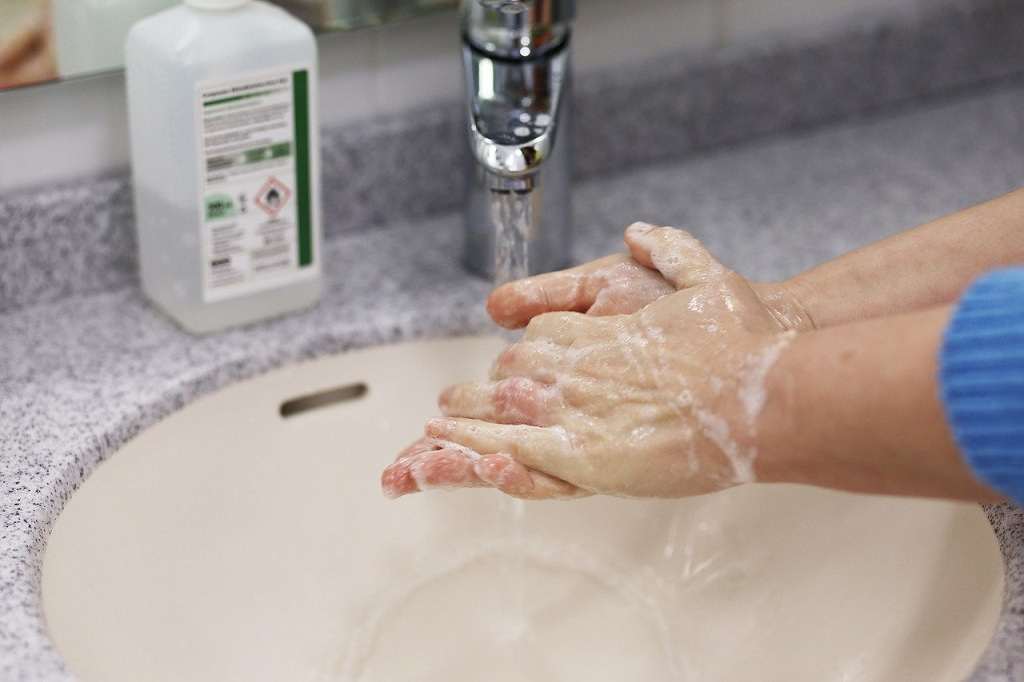
- Use running clean water that is (warm or cold) to wet your hands, turn off the tap, and apply soap.
- Rub your hands together with the soap to Lather your hands. Lather between your fingers, under your nails, and back of your hand. For little kids, a caregiver should do this for them.
- Scrub your hands or that of your baby for about 20 to 30 seconds. You could make it fun for young children by singing along with them to their favorite songs.
- Under clean running water, Rinse hands or your baby’s hand thoroughly
- Usea clean towel or air to Dry your kid’s hands.
2. Use of Kitt Refreshing Hand Sanitizer
This is another way on how to protect your kids from coronavirus. you must know that washing hands is the best way to get rid of COVID-19 and other germs in most situations.
Kitt Refreshing hand sanitizer gel is the ideal hand sanitizer every home needs, it is gentle on skin, non-irritating and has a refreshing smell. It is an alcohol-based hand sanitizer that contained 60% alcohol.
How to use Kitt Refreshing hand sanitizer?
- Apply a couple of drops of the gel product to the palm of one hand – for correct amount check product label)
- Rub hands together
- For about 20 seconds, Rub the gel over the surface of hands, the back of your hands, between fingers until the hands are dry.
Pros
- Can be use it on the go, no need to wash your hands after usage
- Unlike other hand sanitizers, Siruini hand sanitizer does not leave a sticky or tacky residue on your hand.
- With our 300ML capacity hand, this sanitizer is ideal for family usage.
- If you choose to, you can be packed it into smaller container. > Get yours today
Cons
- With visibly greasy or dirty hands, hand sanitizer may not be effective.
- It might not remove harmful chemicals and heavy metals from hands.
Caution
Your intention on how to protect your kids from coronavirus shouldn’t be an excuse for hazards. Alcoholic base Hand sanitizer can be poisonous if a couple of mouthfuls are swallowed. So keep away from a child and supervise your children when using it.
3. Isolate the Elderly
Separating the kids from aged grandparents, uncles, aunty, etc., is the right approach on how to protect your kids from coronavirus COVID-19. The severity of COVID-19 increases with age, persons over the age of 80 years, and those with the protracted disease are most vulnerable.
Approximately 8% of people over 50 – 80 years infected with the virus may die. The elderly are more susceptible to the infection, so children should be separated from them for now.
4. Restrict Movement
At this period of coronavirus pandemic, children’s motion should be confined to the home or any safe location to protect them from COVID-19. The virus is spread through contact with an infected surface or sick person, so kids should be confined to a clean or sanitized environment. This point is an important measures on how to protect your kids from coronavirus.
5. Separate Sick Member of the Family
When any member of the family is sick, it proper at this period to isolate that person from the rest of the family, especially to the kids, pending when a correct diagnosis is carried out on the sick person by professional medical personnel. This how to protect your kids from coronavirus and other infectious diseases.
When parents are sick, a grown member of the family or a caregiver should take responsibility for the kids, till full recovery of their parents.
Treating Coronavirus COVID-19
Experimental treatments are being tried almost in every continent. No drugs, vaccines, or standard medicines have proven effective against the new strain of coronavirus (COVID-19).
If you show signs of any symptoms associated with Coronavirus (e.g., Fever, cough, or shortness of breath), you should seek medical attention immediately. This will help prevent the spread of coronavirus.
Stay Safe – Protect your kids at all time!!

If this article on how to protect your kids from coronavirus was helpful, let us know at the comment section below.
This post may contain Affiliate links, which means we may earn a small commission, at no extra cost to you, if you make a purchase through a link. Read full disclosure here.


